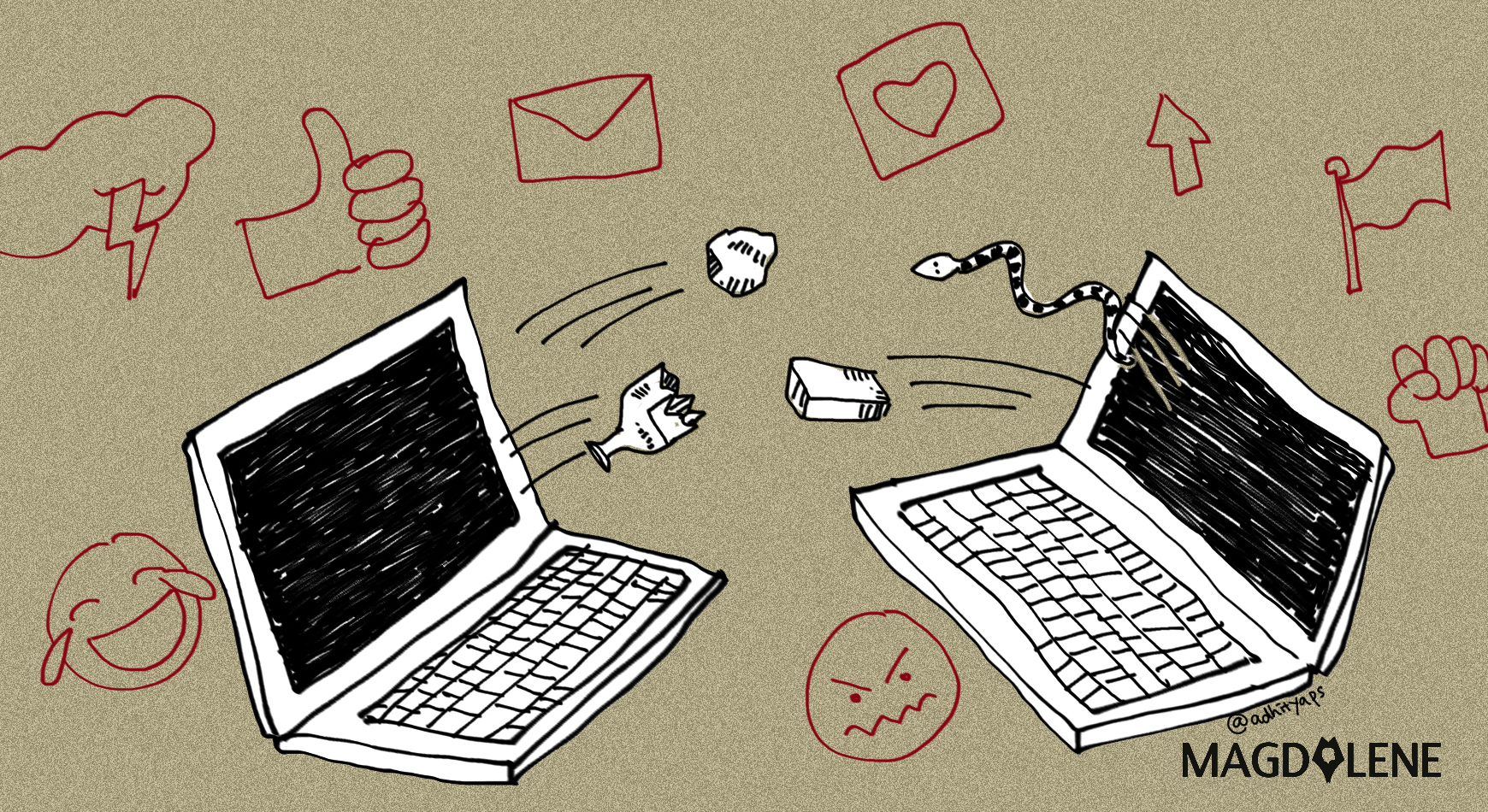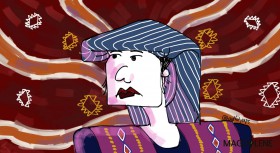Have you ever been involved in a heated argument in an online forum?
I don’t know how well you can suppress the urge to say “moron” to bigots who use illogical arguments steeped in biased political views, but I’m sure you’re familiar with the feeling. At least once you must have decided to hold back to appear more civil, and thus better, than your opponent. I’m sure you have made your best efforts not to say, “How can you be this goddamn stupid?” or “Why won’t you accept the truth?”
But guess what? Those feelings you have, your opponents feel them too. The so-called radicals and bigots – they can relate to the same incomprehension and frustrations the moderates and liberals feel when the two sides are communicating with each other.
The lives that we live now have been shaped by different discourses and experiences that we went through. At certain point, we begin to have the courage to stand up against the things that oppose our views. Whether you’re a woman, a gay person, a Papuan, a Chinese-Indonesian, or a religious person, you are bound to meet someone who dislikes what you believe in or even what you are. And, whether reluctantly or zealously, you will need to stand up for yourself. That is all good – especially when you speak for the oppressed.
However, sometimes we put so much efforts in trying to make other people look at their inconsistencies, logical fallacies, or hypocrisies that we often forget to realize that they too exist in us. And if we manage to see the hideous parts of ourselves in the mirror, we are often struck with shame, denial and confusion. No matter how many times we tell ourselves that “it is humane to make mistakes,” our faults often remain a disgrace.
How does this happen?
I would put my suspicion in society and its particular agencies that construct the world we live in. If you really want to blame something, you might want to point your fingers at the education system. It is a naïvely designed system with a reward-and-punishment approach.
In a school exam, for instance, our hopes and pride lie in how many correct answers we get. Teachers we look up to often express approval of students who do well in class (and by “do well”, I mean getting as many correct answers as one can in order to get a good score), while disapproving of those who don’t. Also, Indonesian schools are dominated by a system of multiple choice in which only one of the few possible answers is correct. There is no single room for explanations or alternatives.
The excess, rather than the fault, of religious institutions also contributes to our conceited culture. We have been taught from a very young age to hold on to a single belief. The room for questions and introspections are allowed only if it does not contain any criticism that might reveal the dark sides of one’s faith.
We have been taught in a chauvinistic way that our faith – its practices and followers included – are the greatest, the purest and probably the holiest thing there is. But the people we disagree with are taught the same. These tenets have often been preached in a form of positive utopia that there is no possibility for mistakes. For some people, it is unthinkable that a discourse on religious purity can be, and is often, used to maintain a certain hegemony or regime. This is why any form of opposing views is often received with so much hatred and disgust – and hastily labelled as “blasphemy”.
But merely putting the blame on the system also risks being clouded with selfishness. I believe that we are more than Pavlov’s dogs, and in this sense, I do not speak it in an existentially liberating way. What I really mean is that we need to accept the blame as much as we put the blame on the society as a whole. After all, aren’t we the tiniest parts of it?
It would be heavenly to believe that we are all inherently good and the system is what makes us go bad. However, this belief lets us off the hook and enables us to avoid the responsibility of our own actions. I am saying this because even if we have been raised in a different way – with no exposure to the two systems above, say – it is still difficult for us to see our own mistakes. The notion of “goodness” keeps us busy constructing our truths, but hardly a chance to deconstruct them.
What I am proposing each of us to do, then, is to allow a room for our own mistake. We have been raised in a system so ignorant of this sphere, and even in our most private moments, we have often faced our mistakes with awkwardness and confusion. It is time to learn to acknowledge our faults and weaknesses and then deal with them with wisdom, awareness, and empathy to others. It is never an easy job to do. It can be exhausting, embarrassing, or even depressing sometimes. But it is the first necessary difficult step to take if we really wish to move forward.
As for me, I’m going to start by looking at what’s wrong with this writing.
Alvin Steviro is a Cultural Studies student, a mediocre pianist, and a tormented INFP. He rants a lot on his twitter account. Oh, and he’s broke as hell.








Comments